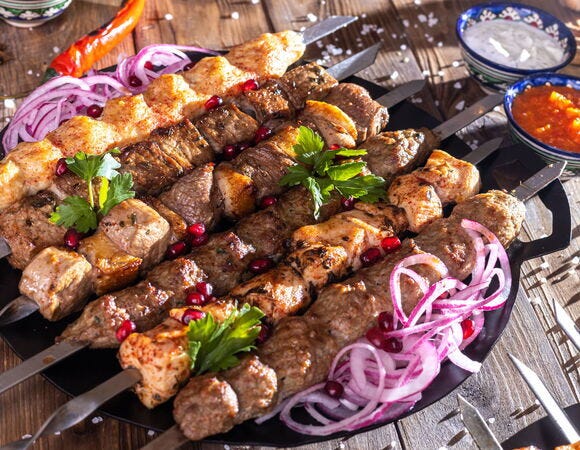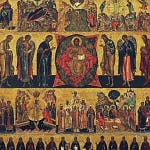General remarks
For those on the new calendar, fasting on the 4th of July is hardly ever an issue, unless the date falls on a Wednesday or a Friday. For those on the old calendar, however, myself included, the 4th of July always falls during the Apostles’ Fast. I have always continued to observe the fast on this day, but this year, I decided to pay particular attention to the specifics in order to share my experience with a real-world situation which may be applicable to other holidays and circumstances. But first - some preliminary general remarks.
The Pious Reader of this blog has undoubtedly noticed a theme which runs through my writing on fasting: it is my firm conviction that fasting as such is an abstinence from food; everything else is dieting, not fasting. Thus, when fasting has been observed - that is to say, when one has abstained from food until the ninth hour (3 p.m.), for example - what follows is the breaking of the fast. The foods that are used for the breaking of the fast may differ in their austerity or festivity - a piece of bread, porridge with oil, grilled salmon, or spit-roasted lamb as may be the case when the fast is broken on the day of Pascha - but all of this gourmet variety is not fasting, it is different options for breaking the fast. I am certainly aware of the fact that some people consider replacing lamb with grilled salmon to be fasting. It is not my place to convince anyone otherwise, but only to share my understanding of the fasting discipline and of its place in the Christian ascetic tradition. All of this is to say that one question for this discussion is not how one may fast on the 4th of July - for this can be accomplished by simply abstaining from food until some hour of the day, such as noon, or 3 p.m., or whatever time the fireworks begin - the real question is whether to break this fast with a piece of bread, or porridge, or a cheeseburger. Of course, those who do not fast but diet instead, may be faced with a somewhat different question.
The second question has to do with travel. It is customarily asserted - and with good reason - that one may relax the fast or even dispense with it altogether during travel. Technically, this was true in Late Antiquity and the Middle Ages. A person traveling by foot or even by donkey in the heat or the cold or the rain may be better off not abstaining from food for lengthy periods of time; and thus, eating earlier in the day and especially drinking in order to stay hydrated was allowed on account of travel. But it would be absurd to assume that travelers were buying burgers and hot dogs at every donkey service plaza they passed. Therefore, I do not find it interesting to discuss people who use their travel in the luxury of an air-conditioned automobile as an excuse to visit a Brazilian steakhouse during Lent. They have their reward. Here, I will share my own recent experience with travelling approximately 3400 kilometers (2100 miles), dealing with a family emergency, and celebrating the 4th of July during the Apostles’ Fast - not as a chance to “be lifted up with pride” (1 Tim 3:6) - may it not be! - but as encouragement for those who, like me, find it unnecessary to break the fast merely because of spending a few hours operating cruise control buttons.
Listen to this episode with a 7-day free trial
Subscribe to Phroneo to listen to this post and get 7 days of free access to the full post archives.












